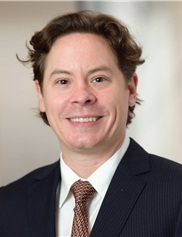Grants Funded
Grant applicants for the 2024 cycle requested a total of nearly $3 million dollars. The PSF Study Section Subcommittees of Basic & Translational Research and Clinical Research evaluated more than 100 grant applications on the following topics:

The PSF awarded research grants totaling over $650,000 dollars to support more than 20 plastic surgery research proposals.
ASPS/PSF leadership is committed to continuing to provide high levels of investigator-initiated research support to ensure that plastic surgeons have the needed research resources to be pioneers and innovators in advancing the practice of medicine.
Research Abstracts
Search The PSF database to have easy access to full-text grant abstracts from past PSF-funded research projects 2003 to present. All abstracts are the work of the Principal Investigators and were retrieved from their PSF grant applications. Several different filters may be applied to locate abstracts specific to a particular focus area or PSF funding mechanism.
Combination Therapy Improves Diabetic Wound Healing
Robert Allen Jr., MD
2009
New York University
Scientific Essay Contest
Introduction: Diabetes negatively affects wound neovascularization. We hypothesize that diabetic (db) wound healing can be improved by correcting endothelial progenitor cell (EPC) mobilization and homing using combination therapy with AMD3100 (a stem cell mobilization agent) and PDGF (a growth factor and chemoattractant).
Methods: Two full-thickness wounds were made on the dorsum of wild-type (wt) and type II db mice. Mice were randomized into 5 experimental arms: untreated wt (WT), untreated db (DB), AMD3100-treated db (A+), PDGF-treated db (P+), and AMD3100/PDGF-treated db (A+P+). Treated animals received daily AMD3100 (10mg/kg; i.p.) and/or PDGF (2µg; topical) beginning on post-wounding day 3 and continuing until wound closure. Wound closure was assessed photometrically. Circulating(c) EPC number was determined by FACS. Wound vascularity (vessels/hpf) was assessed by CD31 immunofluorescence. Wound fibroblast and EPC function were assessed in vitro in the presence of AMD3100 (50ng/mL) and/or PDGF (100ng/mL).
Results: DB had significantly impaired wound healing compared to WT. A+P+ showed the greatest improvements in db wound healing at 7, 14, and 21 day time points (p=0.06, p<0.01, and p=0.02). FACS analysis demonstrated that AMD3100 increased cEPC levels (3.7±1.0-fold at 1 hour, 11.9±1.7-fold at day 7, and 19.6±1.9-fold at day 14). On day 21, wound vascularity increased most significantly with combined therapy (DB: 155.3±16.1, WT: 403.5±15.8, A+: 279.3±44.7, and A+P+: 431.8±19.3, p=1.3 x 10-11). AMD3100 did not affect EPC or fibroblast function, whereas PDGF significantly increased fibroblast proliferation (p<0.05).
Conclusion: Combination AMD3100 and PDGF therapy improves bone marrow-derived EPC mobilization and trafficking, respectively, resulting in significantly improved db wound vascularity and healing.
 First Place Investigator Category -
Robert J. Allen, Jr. is a first year Plastic Surgery Resident at New York University Langone Medical Center. He graduated from the Medical University of South Carolina in 2007, spending the following 2 years as a Research Fellow in the Institute of Reconstructive Plastic Surgery Laboratory at NYU. His research interests include diabetic wound healing, tissue engineering and autologous tissue transplantation. Previously, Robert was awarded the Wound Biotechnology Foundation Travel Award for Trainees by the Wound Healing Society as well as two research grants through the Plastic Surgery Education Foundation.
First Place Investigator Category -
Robert J. Allen, Jr. is a first year Plastic Surgery Resident at New York University Langone Medical Center. He graduated from the Medical University of South Carolina in 2007, spending the following 2 years as a Research Fellow in the Institute of Reconstructive Plastic Surgery Laboratory at NYU. His research interests include diabetic wound healing, tissue engineering and autologous tissue transplantation. Previously, Robert was awarded the Wound Biotechnology Foundation Travel Award for Trainees by the Wound Healing Society as well as two research grants through the Plastic Surgery Education Foundation.